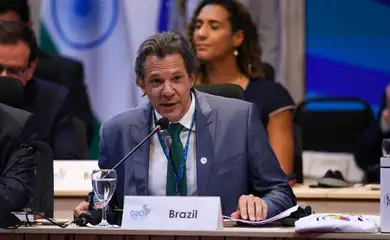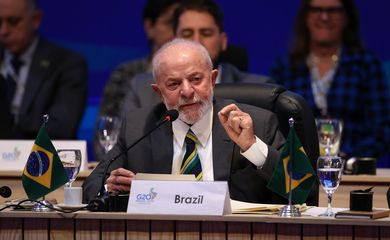Brazil seeks international support for Global Alliance against Hunger

Brazil's Minister of Development and Social Assistance, Family, and Fight against Hunger, Wellington Dias, presented the actions of the Global Alliance against Hunger and Poverty on Monday (Oct. 21) in Rome, Italy. This initiative, launched during Brazil's G20 presidency in July, was unanimously endorsed by all the members of the bloc. The G20 includes the world's largest economies, along with the African Union and the European Union.

Minister Wellington Dias is representing Brazil at the 52nd Plenary Session of the Committee on Food Security (CFS), which runs through Friday (25) at the Food and Agriculture Organization (FAO) headquarters in Rome.
At a side event during the FAO plenary session, Minister Wellington Dias called on governments and organizations worldwide to join the initiative endorsed by the G20. “This is a state project, not just a collection of isolated measures, but a well-structured plan with a clear beginning, middle, and end. Even more importantly, it focuses on proven strategies that have delivered results," he said.
Wellington Dias highlighted Brazil's successful initiatives in reducing poverty and hunger, including income transfer programs, school meals, skills training for employment and entrepreneurship, as well as low-interest financing options and, in some cases, government subsidies.
The minister expressed confidence that the Global Alliance will help lift the world’s most vulnerable populations out of poverty and extreme poverty.
The minister stated, “Each country needs to develop its own plan that integrates the fight against hunger with education, health, and employment preparation, while also ensuring food production is affordable. Additionally, it is crucial for wealthier nations to support developing countries in these efforts.”
Hunger Map
During the meeting, the minister reiterated Brazil's commitment to eliminating hunger by 2026. “Brazil will do its part to remove itself from the Hunger Map by reducing poverty and extreme poverty. However, we also hope to achieve this victory for other regions around the world.”
The minister noted that Brazil has committed to the United Nations (UN) Sustainable Development Goal (SDG) number 2, which aims to end hunger, achieve food security, improve nutrition, and promote sustainable agriculture by 2030.
Food security
In response to the FAO's annual report on Food Security and Nutrition in the World, which reveals a decline in these indicators in recent years, Minister Wellington Dias highlighted that the study also shows improvements in food insecurity reduction rates in Latin America and the Caribbean, noting Brazil's significant role in achieving this progress.
“Brazil has made significant strides, with 24.4 million fewer people experiencing food insecurity and an 85 percent decrease in those facing severe food insecurity [in 2023]. We have also seen reductions in extreme poverty and overall poverty levels,” the minister stated.
Dias outlined the Brazilian government's initiatives that contributed to these outcomes, including the restructuring of the Bolsa Família income transfer program, the Food Acquisition program, and the National School Feeding Program.





